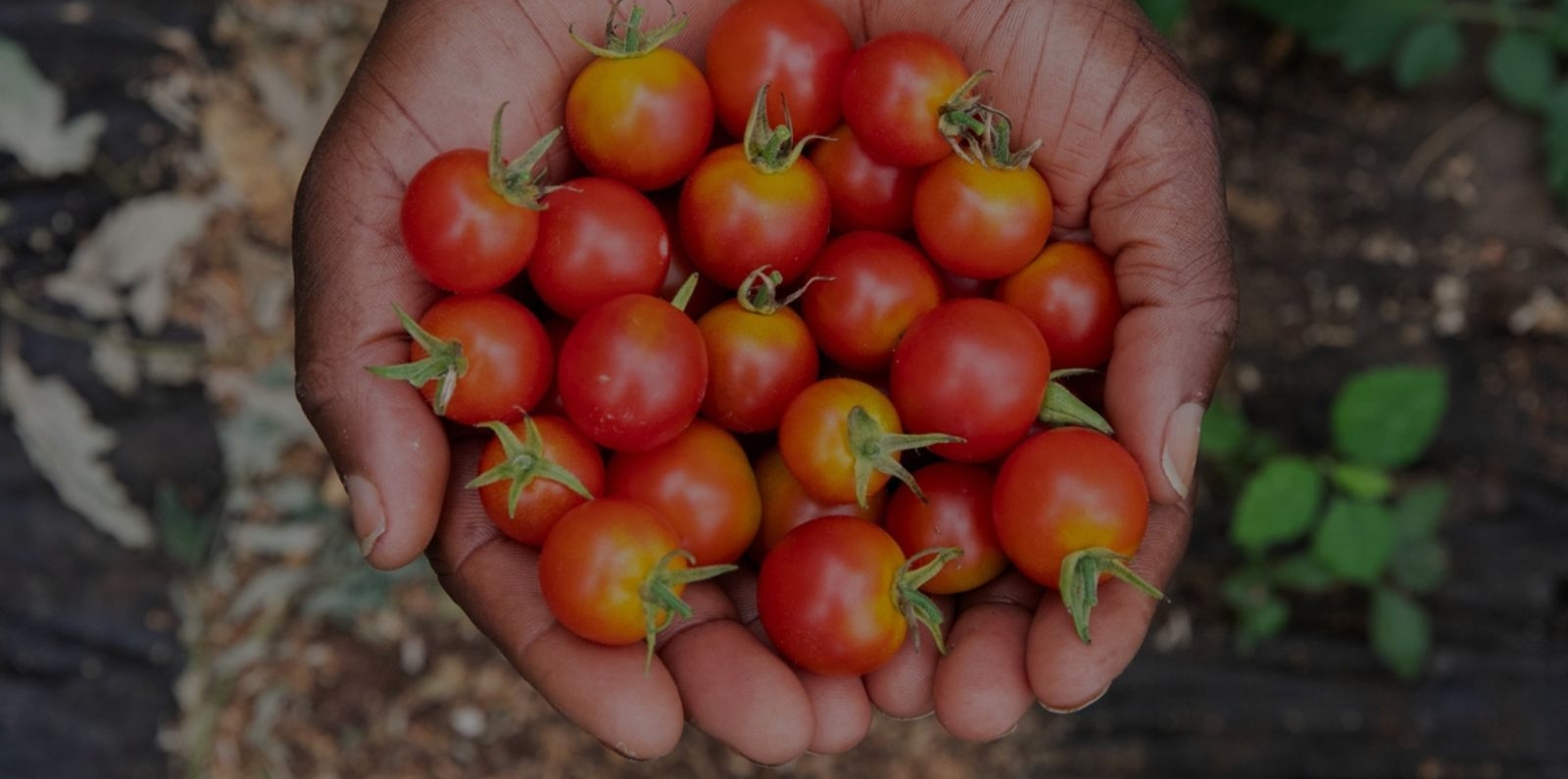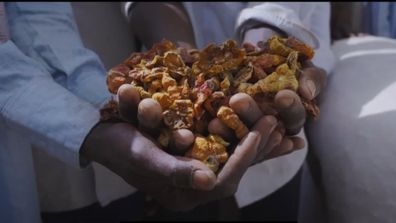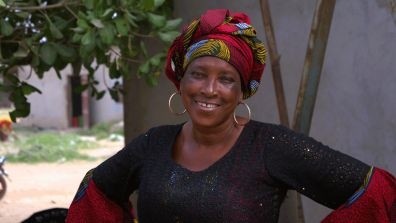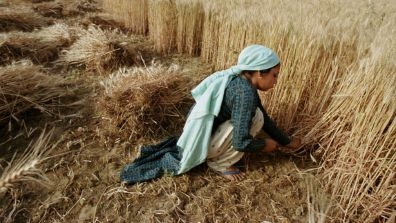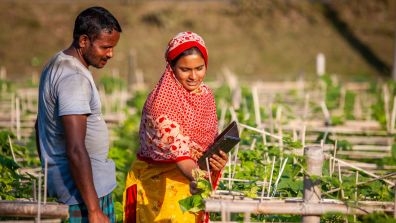This story was originally published on the IFC's website.
Kettelie*, a farmer from the mountains high above Port au Prince, Haiti, remembers her first cherry tomato harvest, when well-meaning neighbors rushed to her fields in a panic to see what went wrong. “Someone shrunk your tomatoes,” they told her.
Her neighbors stopped worrying, she recalled recently, when they saw how quickly she was able to sell the tiny fruits to a local produce aggregator that supplies the city’s top hotels, restaurants, and supermarkets.
Until recently, high-end produce like cherry tomatoes were all imported, but that’s starting to change, thanks to an IFC Haiti Horticulture advisory project that is connecting Haitian smallholder farmers like Kettelie to GreenFresh S.A, a local firm specializing in the production and commercialization of high-quality vegetables.
The project, which is supported by the Private Sector Window of the Global Agriculture and Food Security Program (GAFSP), is working closely with SOHADERK, a local farming association, and FONHDAD, the Haitian Foundation for Sustainable Agricultural Development. It’s providing farmers with training and inputs, while boosting domestic production and producing sustainable incomes for a sector that employs half of Haiti’s population. The Private Sector Window of GAFSP is supported by the governments of Australia, Canada, Japan, the Netherlands, the United Kingdom and the United States.
The project, through GreenFresh, sells high-quality produce to supermarkets and other clients to replace imported products, in order to boost local production and reduce foreign currency demand. In addition, imported goods are often unpredictable because of border closures, disruptions at the port, and insecurity more generally. It’s a win-win for the company, according to Jean Robert Estime, director of GreenFresh, which needs a stable, predictable, and local source of high-quality fruit and vegetables to sell to supermarkets, hotels, and restaurants.
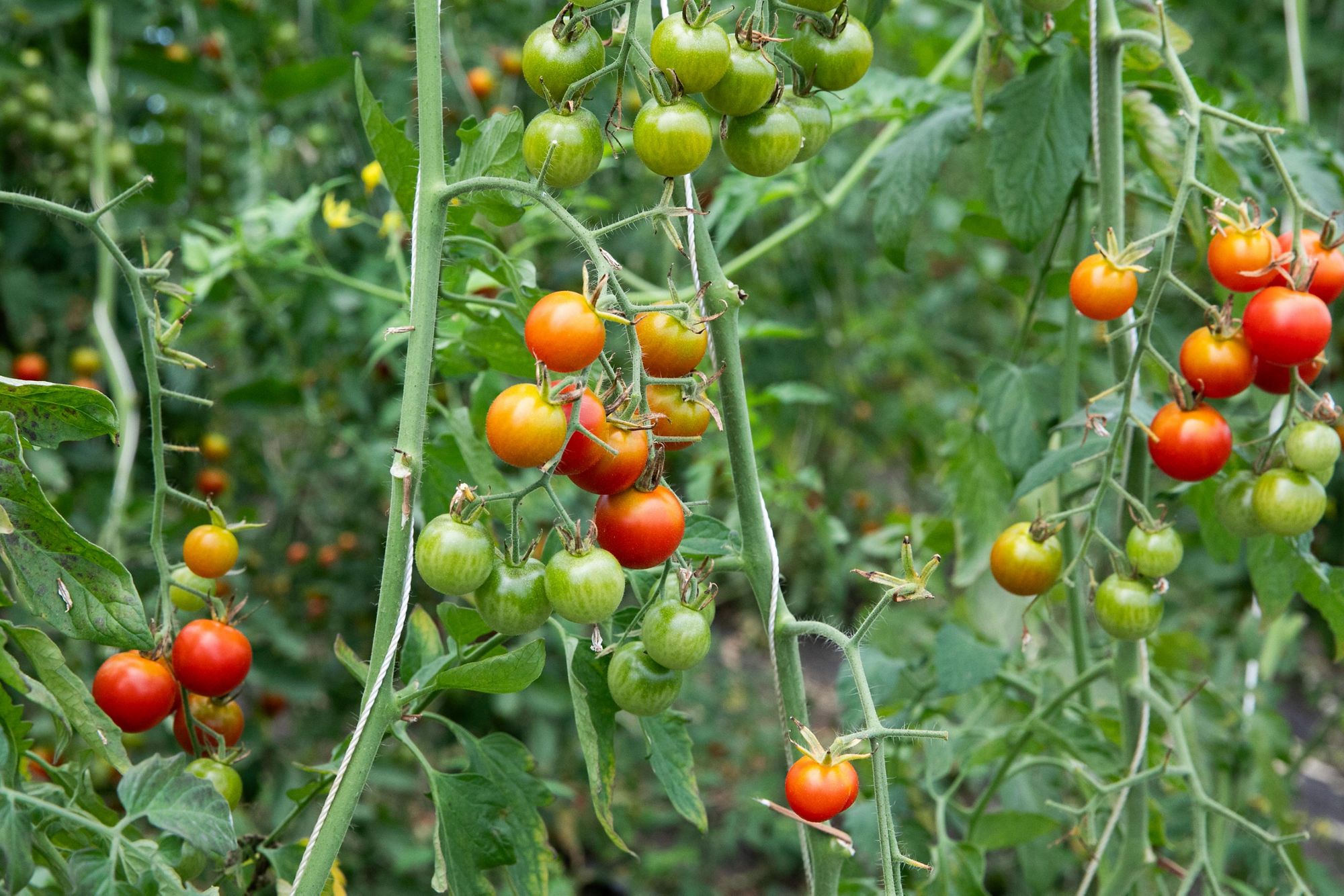
“The partnership with IFC and local farmers is helping us manage our value chain and guarantee access to high-quality produce,” he said. “By working with farmers, providing them with inputs and training, and giving them information on what the market wants, we are creating an incentive for farmers to have a long-term relationship with us.”
Agriculture contributes 25 percent of Haiti’s GDP and employs half the workforce, but food insecurity is high and nearly half the population is classified as food insecure. Though markets are well-stocked, and food is plentiful, prices are beyond what most Haitians can afford. Ongoing struggles with political instability, gang violence, and vulnerability to extreme weather have compounded the challenges facing the country’s agricultural sector. Kettelie, for example, has been farming her whole life but in recent years, she’s struggled to support her two children.
“Haiti has an incredibly complex food system with multiple institutional and sectoral crises, and so it is very difficult for farmers to generate income,” said Kenel Cadet, coordinator at FONHDAD, the Haitian Foundation for Sustainable Agricultural Development, which is providing farmer training as part of the project. As a result, Cadet says, the project has been uniquely designed to address these challenges from various lenses—providing training and inputs, while also creating direct market access for farmers. By working with formal buyers, for example, Kettelie is able to reduce the risk of traveling to informal markets farther away, along roads that carry the risk of gang violence and kidnapping.
“Market-oriented extension services are critical to support farmers to increase production, and also give them direct access to markets they couldn’t otherwise reach,” Cadet said.
According to Cadet, improving farmers’ incomes is critical to boosting food security and economic independence. The project therefore works closely with farmers, providing high-quality seeds alongside training in modern planting and harvesting techniques. It also teaches farming as a business, helping farmers learn tools to weather economic and political uncertainty and better manage shocks—and also produce a harvest that is competitive with imports.
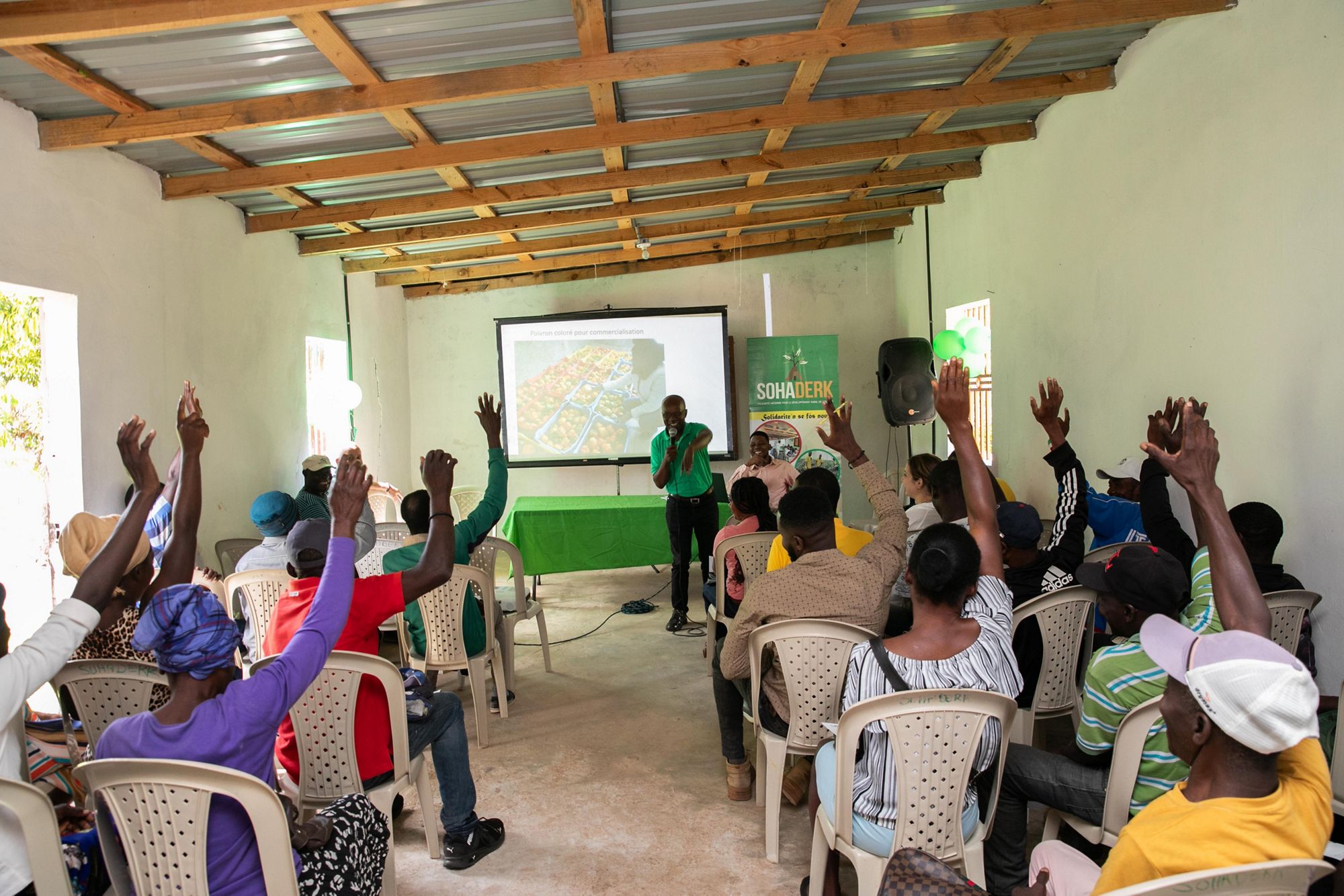
Charles, a pepper and cabbage farmer from the mountain village of Robin, says that he’s learned to be more resilient. “In the past when I would have pests devastate my crop I would be really discouraged; but with this project I now know ways to prevent that,” he said. “The project taught me a lot about commercialization and credit,” he added. “Now I can provide for my family.”
As part of the program, farmers receive training on post-harvest management, food safety, and proper storage and packaging so that GreenFresh and the hotels and restaurants they supply receive produce free of contaminants, blemishes or bruises. Farmers also learn to cultivate high-end produce like cherry tomatoes, red cabbage, broccoli and special varieties of lettuce, which are typically imported.
Project results have so far been promising, with farmers diversifying their vegetable production while also doubling yields, according to Colomb Louisma, an agronomist and technical director at SOHADERK, one of the project training partners. “Farmers are producing more and losing less in post-harvest loss,” he said. “The project is giving farmers the opportunity to become more self-sufficient and reach a premium market—which they never would have been able to do otherwise. And it creates an assurance for farmers that someone will buy their produce from them.”
The training, he said, is also helping farmers deliver to GreenFresh during the dry season, creating a reliable and sustainable source of income for farmers and helping prevent market saturation during the rainy season when prices drop. And SOHADERK has allowed farmers the use of their greenhouse year-round.
For Kettelie, the project has been transformational. “It has shown us how important it is that Haiti can be self-sufficient,” she said. “The more we produce in Haiti, the more the money stays in Haiti, giving us the ability to take care of our children, families, and community.”
Her husband, Josué, also a farmer in the program, agrees. “Haiti has a lot of people who want to work hard,” he said. “The country is very difficult but with the right support we can do a lot.”
* Like other farmers in the story, Kettellie is being identified by her first name only because of security concerns.
